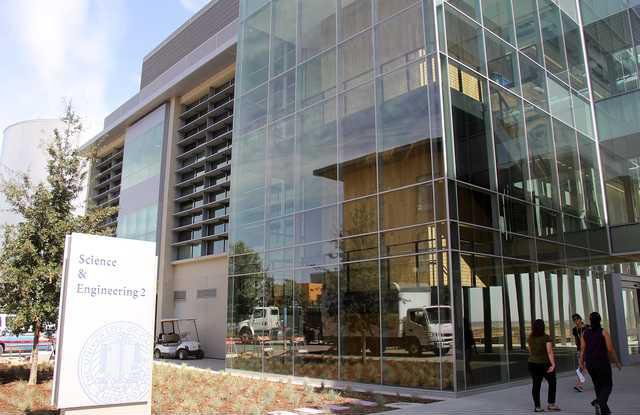The State Legislature approved a budget Wednesday that includes a $122.5 billion spending plan and raises vehicle registration fees by $10, generating $400 million.
The budget was approved nearly along party lines, with all Democrats and just one Senate Republican — Anthony Cannella of Ceres — in favor.
“My role as a representative for the Central Valley is to advocate for the needs of our communities,” Senator Cannella said. “The budget we voted on (Wednesday), although far from perfect, will fund programs to fight crime and address water issues in my district. In addition, it bolsters our rainy day fund and increases funding for education.”
Senator Cannella’s additions to the budget include monies for gang counter-violence, constructing/renovating police headquarters in three cities, Salinas River clean-up efforts, a violence interrupter program and public safety equipment for UC Merced.
“I am disappointed that this year’s budget did not address our transportation shortfalls,” said Cannella. “I will continue to make this my top priority and expect that we will be able to find a solution to fix our unmet needs this year.”
Assemblymember Kristin Olsen of Riverbank was glad to see increased funding for California students to attend college and workforce readiness, but critical of the amount of spending the budget includes overall as the state is still recovering from the recession.
“Having served on the Budget Conference Committee, I am pleased to see the success of programs that will prepare Californians for the workforce. The Budget dedicates resources to address a shortage in critical professions, such as teachers and physicians. It also prioritizes funding for foster youth and for enrollment of California students in our public universities — while requiring UC to place a cap on the number of nonresident students," said Olsen.
“While I am also pleased that this budget makes another $2 billion deposit into the Rainy Day Fund, we must heed the Department of Finance’s warning that the overall budget’s unprecedented spending level sets the State up for disastrous economic deficits within just a few short years and without doing anything to fix our rapidly crumbling roads and bridges. Therefore, on the whole, the Budget simply isn’t supportable because it grows spending too quickly and puts the State’s fiscal health on shaky ground,” she continued.
Highlights of the budget include:
· A big boost in wages for people who provide subsidized child care and allows coverage for nearly 9,000 additional children;
· Repeal of a provision of CalWORKs, the state's welfare program, that prohibits additional state aid for children conceived while a parent is on welfare;
· Increases UC funding by $144 million. But $19 million of that would only be available if UC schools enroll at least 2,500 more California residents and the UC Board of Regents adopts a policy capping enrollment by out-of-state students;
· Sets aside $400 million for low-income housing, contingent on lawmakers approving a controversial proposal by Brown to speed up development in some neighborhoods;
· $5 million for a gun violence research center at the University of California;
· An increase in vehicle registration fees from $70 to $80 a year starting in April, to generate $400 million a year for the Department of Motor Vehicles, California Highway Patrol, Air Resources Board and other departments.
Lawmakers failed to reach a deal on funding to fix crumbling roads and highways, which they have labeled as a top priority for several years. Democrats say they'll deal with road construction separately. They maintain it will require an increase in taxes or fees to generate sufficient revenue.
— The Associated Press contributed to this report.





